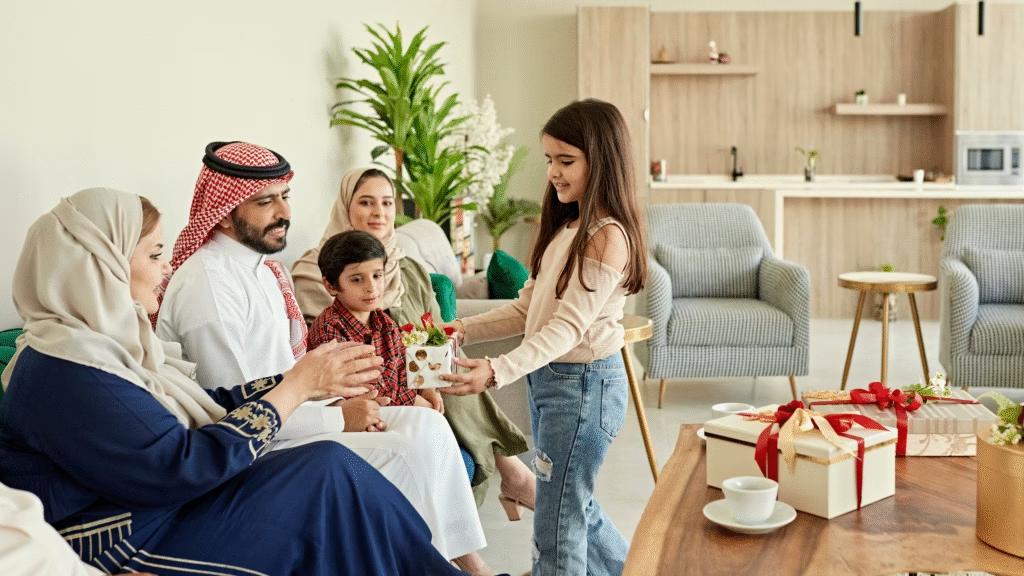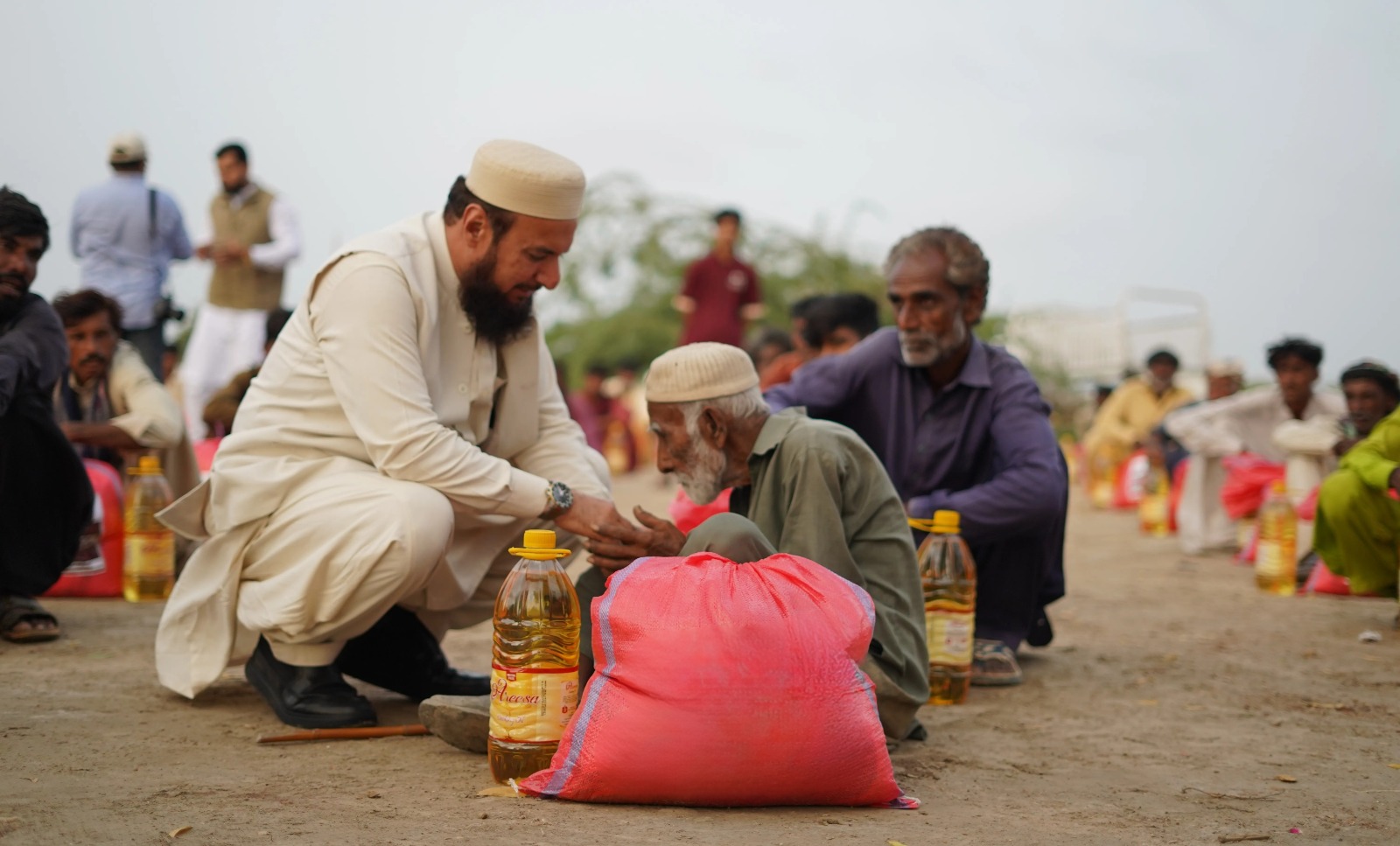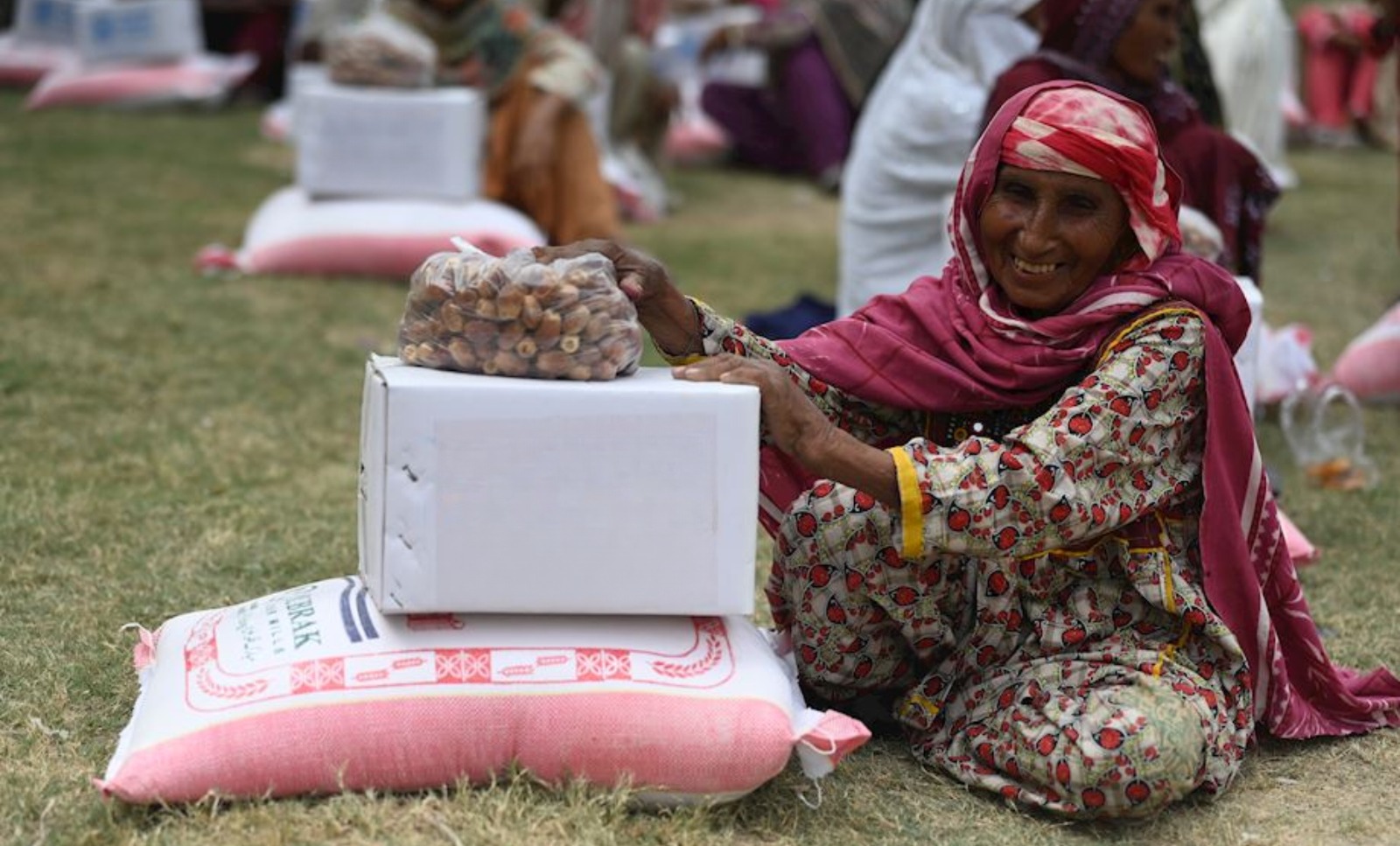Eid morning is one of the most exciting feelings in the world. After a whole month of fasting, the day of celebration is finally here! For children, the excitement is double. They wake up early, put on their best new clothes, and get ready for a day of fun, family, and food.
And, of. course, they are waiting for that special something.
For some of us, that “special something” is the jingle of coins or the crinkle of a new banknote. We call it Eidi. For others, it’s the joy of ripping the wrapping paper off a present, a special Eid Gift.
This leads to a fun question: which one is better? Is there a right or wrong way to give? Let’s explore the wonderful debate of Eidi vs. Eid Gift, what the difference is, and why both of them are a beautiful, important part of our celebration.
What is Eidi? The Joy of the Crisp Banknote
“Eidi” is the traditional name for a gift of money given on Eid by elders to younger people. It’s a practice that has been passed down for generations in many Muslim cultures, from Pakistan and India to the Middle East and beyond.
The Feeling of Eidi
There is a special kind of magic to Eidi. It’s the feeling of your grandfather, grandmother, aunt, or uncle smiling, pulling out their wallet, and handing you a crisp, new banknote.
The best part of Eidi is the feeling of freedom it gives you. That money is yours. You can run to the corner shop and buy your favourite sweets or ice cream. You can save it up with the Eidi you get from other relatives to buy a toy you’ve been wanting for months.
Why Eidi is Wonderful
- It Teaches Choice: Eidi is often a child’s first introduction to managing their own money. It teaches them choice and a little bit of independence.
- It’s a Symbol of Blessing: The cash gift is a symbol of barakah (blessing) and prayers from the elder to the younger person.
- It’s Always the Right Size: The giver doesn’t have to worry if the child will like the gift. Every child likes Eidi!
What is an Eid Gift? The Joy of the Wrapped Present
An Eid Gift is a more recent, but just as wonderful, tradition in many families. This is a physical, pre-chosen present, wrapped up and given to a child on Eid morning, just like a birthday or celebration present.
The Feeling of an Eid Gift
The magic of an Eid gift is the surprise. It’s the excitement of seeing a box with your name on it, shaking it, guessing what’s inside, and finally tearing off the paper to reveal the prize.
This gift is often something the child has been needing or wanting, but couldn’t get for themselves.
Why an Eid Gift is Wonderful
- The Gift of Dignity: The most common Eid gift is a set of brand-new clothes. For many families, this is the only new outfit a child might get all year. It allows them to go to the Eid prayer and visit family feeling proud, confident, and equal to all the other children.
- The Gift of Joy: A physical gift, like a doll, a football, or a set of colouring pencils, provides immediate and long-lasting fun.
- The Gift of Thoughtfulness: A present shows that the giver took the time to think about the child and choose something just for them.
This is what many charities focus on when giving to children in need. They create special packages of joy. See what’s inside our gift packs to understand how we bring joy to children with a thoughtful, complete present.
The Big Question: Eidi vs. Eid Gift Is One Better?
So, we have the freedom of cash (Eidi) versus the surprise of a present (Eid Gift). Which one is the “best” way to celebrate?
The wonderful answer is that neither is better. They are just two different ways of doing the exact same thing: following the Sunnah of spreading joy and making children feel loved on the day of Eid.
The Prophet Muhammad (peace be upon him) told us to show happiness and celebrate. He (ﷺ) also said, “Give gifts to one another, and you will love one another.” (Al-Adab al-Mufrad)
Both Eidi and Eid gifts are powerful ways to follow this advice. They are two different methods for the exact same goal.
Here’s a simple way to look at it:
| Feature | Eidi (Cash) | Eid Gift (Present) |
| Form | Money | Physical item (toy, clothes, etc.) |
| Key Benefit | Freedom of choice, independence | Surprise, a specific item, dignity |
| Feeling | Excitement, feeling “rich,” choice | Joy of unwrapping, feeling known |
| Main Goal | To make a child happy and feel loved | To make a child happy and feel loved |
So, the debate of Eidi vs. Eid gift isn’t really a debate at all. They are both beautiful expressions of the same purpose.
Why Both Matter (Especially for Children in Need)
For our own families, a child might be lucky enough to get both! They might get new clothes (an Eid gift) from their parents and Eidi (cash) from their grandparents.
But for an orphan or a child living in deep poverty, receiving anything at all is what makes the difference between a day of celebration and a day of sadness.
This is where the Eidi vs. Eid gift question becomes very practical for charities like Children of Adam. We have to decide: what is the best way to use a £10 donation to make a child happy?
The answer is: it depends on the child’s situation.
When an Eid Gift Pack is the Best Choice
In many of the remote villages or orphanages where our teams work, a cash gift (Eidi) is not practical.
- There might not be a local shop to spend the money in.
- A small child might not be able to manage the money.
- The child’s most urgent need is a new set of clothes and a toy to call their own.
In this case, a physical Eid gift pack is the best solution. Our teams use the £10 donation to buy new clothes, a toy, and some sweets in bulk. This guarantees that every child gets a high-quality, complete gift that brings them immediate joy and dignity.
When Eidi (Cash) is the Best Choice
In other situations, such as for a widowed mother in a town, cash is the best gift.
- It empowers the mother.
- It gives her the dignity of going out and buying the exact new shoes or dress that her child needs.
- It allows her to buy the special food she knows her family loves for their Eid celebration.
In this situation, your £10 donation is given to the mother as Eidi, empowering her to create a happy Eid for her own family.
This is why our Eid gift programme is so flexible. We trust our teams on the ground to make the best decision. Whether it’s a cash gift or a present, your £10 donation allows us to give an Eid gift in the most appropriate way to bring the biggest smile to a child’s face.
A Celebration After a Month of Charity
This celebration of giving gifts is the beautiful end to a month of hard work and compassion.
Ramadan is a month where we feel the hunger of the poor and we increase our charity. This celebration comes after a month of intense charity, such as feeding the fasting every day.
First, we fulfil our duties, like paying our Zakat and Fitrana, to make sure the poor are not hungry. Then, once that duty is done, Allah (SWT) gives us a day to celebrate our shared joy. Eidi and Eid gifts are the perfect way to do that.
So, as you get ready for Eid, don’t worry about the “right” way to give. Whether you call it Eidi or an Eid gift, the most important thing is the intention in your heart: the intention to share your blessings, follow the Sunnah, and make a child feel happy, loved, and included in our beautiful festival.




